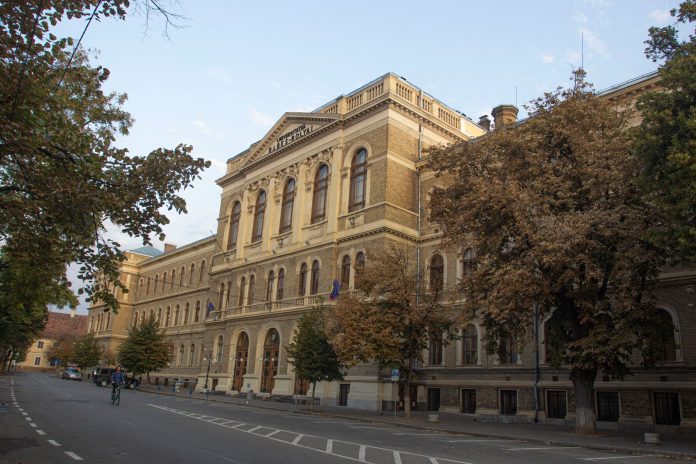European Commission Vice-President Dubravka Suica, and European Commissioner for Innovation, Research, Culture, Education and Youth Mariya Gabriel visited on Saturday the Babes-Bolyai University (UBB) in Cluj-Napoca, in a bid to honor the institution’s history, multicultural profile and academic leadership, UBB said in a release, according to Agerpres.
„If in 2019 the Babes-Bolyai University celebrated 100 years of Romanian university, and in 2021 it celebrated 440 years of academic tradition (German tradition included), in October 2022 we mark 150 years of Hungarian higher education, as the University’s multicultural profile with three official languages (Romanian/Hungarian/German) honors its past and projects it as one of the most complex European universities from this point of view, in accordance with the European language policies promoted through European university alliances,” the Babes-Bolyai University said in the release.
UBB Rector, Professor Daniel David, presented the history of the institution, its multicultural profile and strategic projects as part of the Eutopia European alliance it is a member of.
The visiting European officials summarized, in their turn, the main lines of action of the European Commission and of their own portfolios, discussing them with the participants in the meeting.
„I am pleased with the attention shown by the European Commission to UBB’s history, multicultural profile and academic leadership. This somewhat comes naturally, taking into account the University’s academic profile and the fact that it is one of the social actors dedicated to European Romania and the EU. In essence, the key message of the EC Vice-President on democracy was that universities must train good specialists and good European citizens, something that UBB has stated in its mission and does well, and as far as the demographic part is concerned, that we must be careful with the circulation of talents. Through its multicampus structure (extensions) UBB is clearly part of this trend by which we avoid concentrations in certain areas to the detriment of others. The essential message of Commissioner Mariya Gabriel (…) was that through the various, extremely complex and dynamic initiatives and strategies, the European Commission wants to strengthen scientific research to become an engine of active education and innovation, in an academic context where new European institutions (such as European alliances) and innovative ecosystems organized in tiered networks (at local/regional/European level) are gradually being born,” the UBB Rector said, as cited in the release.
Agerpres


